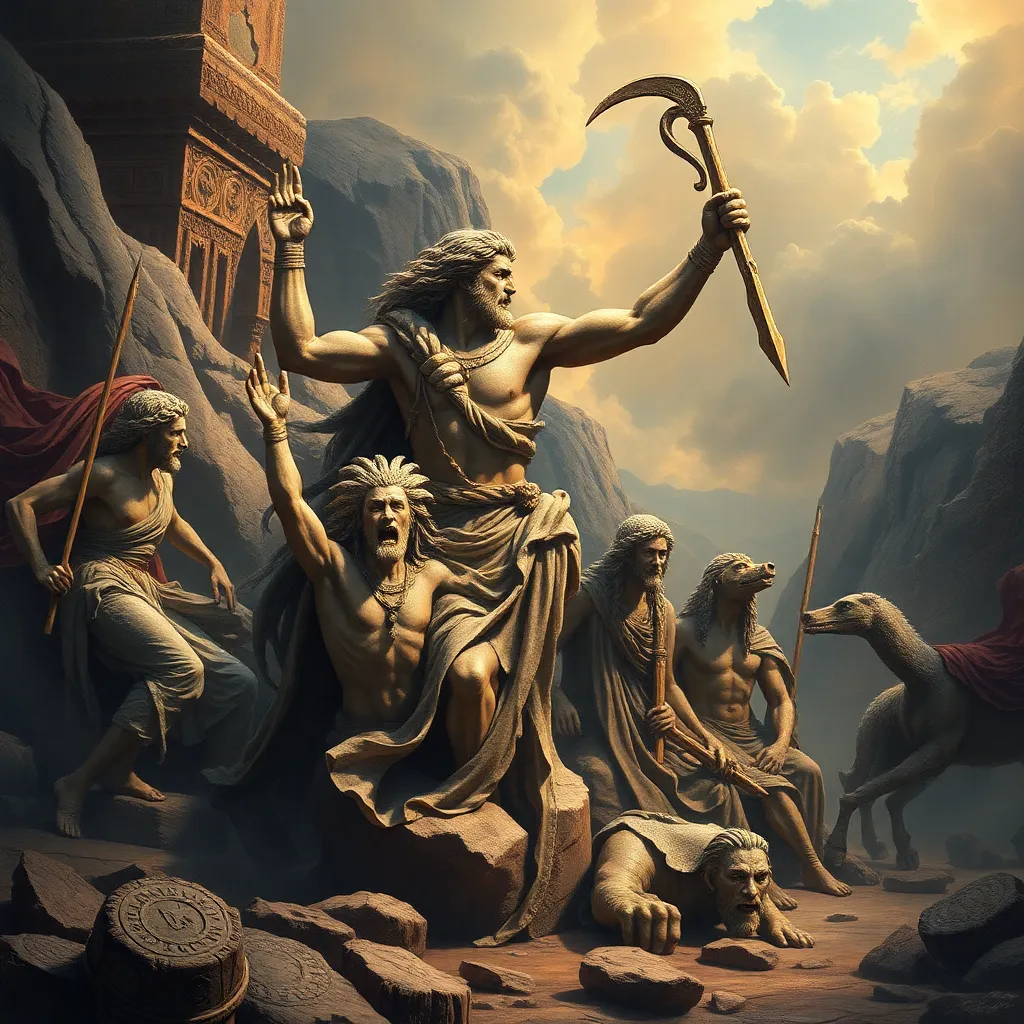The Iliad’s Influence on the Development of Epic Poetry
I. Introduction
The Iliad, attributed to the ancient Greek poet Homer, stands as one of the cornerstones of Western literature. Composed in the 8th century BCE, this epic poem recounts the events of the Trojan War, focusing on the wrath of Achilles and the consequences of pride and honor. Its significance extends beyond mere storytelling; it has profoundly shaped literary traditions and the genre of epic poetry itself.
Epic poetry is characterized by its lengthy narrative form, elevated style, and the exploration of grand themes, often involving heroic figures and significant events. The purpose of this article is to delve into how The Iliad has influenced the development and evolution of epic poetry, establishing foundational elements that resonate through centuries of literature.
II. Historical Context of The Iliad
To understand The Iliad’s impact, one must first consider the historical backdrop of ancient Greek culture. This period was marked by a rich oral tradition, where stories were passed down through generations, often through performance. Oral poets like Homer played a vital role in this tradition, crafting narratives that would become central to Greek identity.
The Iliad serves not only as a literary masterpiece but also as a reflection of its time, presenting themes of honor, bravery, and the consequences of human actions. The poem captures the complexities of human emotion and societal values, offering insights into the ancient Greek worldview.
III. Structural Elements of The Iliad
The Iliad employs various narrative techniques and a specific poetic form that distinguish it as a work of epic poetry. One notable aspect is the use of dactylic hexameter, a rhythmic scheme that enhances its oral recitation. This meter, characterized by a combination of long and short syllables, adds a musical quality to the narrative.
In addition to meter, The Iliad features the strategic use of invocations and epithets. Invocations typically open the poem, calling upon the Muse for inspiration, while epithets serve to characterize individuals, such as “swift-footed Achilles” or “wily Odysseus.” These devices contribute to the poem’s grandeur and help in the oral transmission of its themes.
IV. Themes and Motifs in The Iliad
The Iliad explores several key themes that have influenced subsequent epic works. Among the most prominent are:
- Honor: Central to the characters’ motivations, the pursuit of personal honor drives the narrative forward.
- Fate: The inevitable fate of characters highlights the tension between human agency and predestined outcomes.
- The Human Condition: The poem delves into the complexities of love, loss, and mortality, resonating with universal experiences.
These themes not only enriched The Iliad but also served as a template for later epic poets. For instance, Virgil’s Aeneid echoes the themes of honor and fate while presenting a new cultural context. By examining these motifs, one can see how they permeate later works, illustrating the lasting impact of The Iliad on the epic tradition.
V. Characterization and Heroic Ideals
The Iliad features a cast of complex characters, each embodying different facets of the heroic ideal. Key figures such as Achilles, Hector, and Agamemnon are not merely archetypes; they display depth and vulnerability, grappling with their motivations and flaws.
The concept of the hero in epic poetry has evolved, with The Iliad setting a precedent for character development. Heroes are depicted not only through their martial prowess but also through their emotional struggles and moral dilemmas. The intricacies of characters like Achilles, whose rage leads to devastating consequences, demonstrate the multifaceted nature of heroism.
This nuanced characterization has influenced later epics, encouraging writers to explore the psychological dimensions of their protagonists, thereby enriching the genre.
VI. The Iliad’s Legacy in Subsequent Epic Poetry
The Iliad’s influence extends to numerous works that followed, most notably The Odyssey and Virgil’s Aeneid. Both of these texts borrow thematic elements and narrative structures from The Iliad, showcasing its foundational role in the epic tradition.
Beyond Greek literature, The Iliad has shaped epic storytelling across cultures. For example, the Indian epic Mahabharata and the Persian Shahnameh reflect themes reminiscent of those found in The Iliad, demonstrating the universal nature of its motifs.
Modern adaptations of epic poetry also draw inspiration from The Iliad, as seen in contemporary retellings and reinterpretations that maintain its core themes while exploring new contexts. This legacy speaks to the timelessness of Homer’s work.
VII. The Iliad’s Cultural and Educational Impact
The Iliad continues to hold a significant place in education, often included in curricula to illustrate the foundations of Western literature. Its exploration of moral and philosophical questions provides valuable lessons that resonate with readers across generations.
As a cultural artifact, The Iliad serves as a moral guide, prompting discussions about honor, duty, and the human experience. Its impact on literary criticism and analysis has also been profound, influencing how we approach texts and their meanings in both historical and contemporary contexts.
VIII. Conclusion
In summary, The Iliad’s enduring influence on epic poetry cannot be overstated. Its narrative techniques, thematic richness, and complex characterizations have shaped not only the genre itself but also the broader landscape of literature. Preserving and studying epic traditions like The Iliad is crucial for understanding cultural heritage and literary evolution.
As we reflect on the relevance of The Iliad in contemporary literature and culture, it remains a testament to the power of storytelling and the exploration of fundamental human truths, securing its place in the canon of great literary works.




